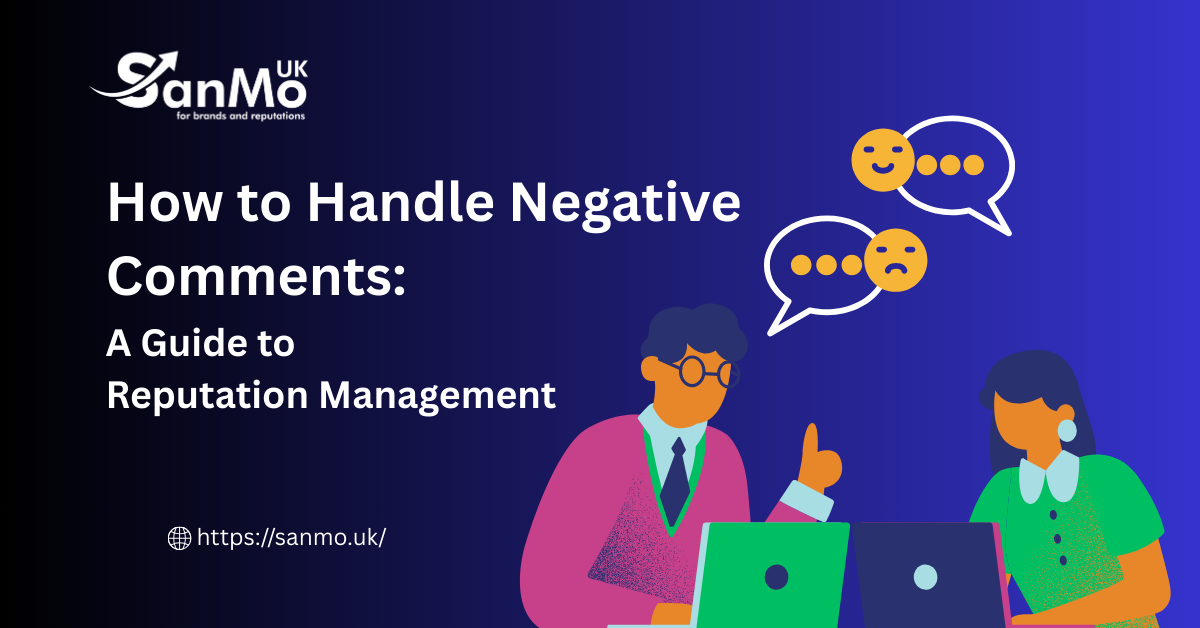How do your customers perceive your brand online? Whether that picture includes glowing praise, a mix of reviews, or the occasional criticism, your online reputation has the power to build or break your brand’s success.
With over 93% of consumers saying online reviews influence their purchase decisions, businesses can no longer afford to ignore what’s being said about them on digital platforms. This blog post dives into why online reputation management (ORM) is critical for your brand’s growth and provides actionable tips to handle it effectively.
What Is Online Reputation Management?
Online reputation management is the practice of monitoring, influencing, and improving how your brand is perceived online. It involves a combination of tracking online mentions, managing reviews, engaging with customers, and creating positive content to maintain your desired image.
Think of ORM as your brand’s digital PR—it helps shape public opinion and ensures that your brand’s virtues are front and center during every online customer interaction.
Why Is Online Reputation Management Important?
1. First Impressions Are Critical
Your online presence is often the first thing potential customers see. When someone searches for your business, the results—be it your website, online reviews, or social media posts—are their first introduction to your brand. A single scathing review or unresolved complaint can cast a shadow over everything else.
Imagine this scenario: You’re searching for a local restaurant. You come across two options—one has hundreds of glowing reviews, while the other has multiple negative complaints and no responses from the business. Which one would you choose?
ORM ensures that your business makes a positive, lasting impression every single time someone searches for you.
2. Boosts Consumer Trust
Trust is the foundation of any lasting customer relationship. A strong online reputation assures potential customers that your brand is reliable, high-quality, and customer-focused.
- Stats to consider: A survey by BrightLocal shows that 76% of people trust online reviews as much as personal recommendations.
When you respond to reviews, address complaints swiftly, and show transparency in your operations, it cultivates trust among your audience.
3. Direct Impact on Revenue
Did you know that a one-star increase on Yelp can lead to a 5-9% boost in revenue for restaurants? The correlation between your online reputation and income applies across industries.
Positive reviews and mentions can increase website traffic, deliver higher conversion rates, and ultimately drive sales. On the flip side, unresolved complaints or bad press can deter customers, reducing revenue significantly.
4. Crisis Prevention and Damage Control
The internet moves fast, and a single mistake can snowball into a public relations disaster. Without a robust ORM strategy, negative comments or viral controversies can linger online, damaging your brand’s image irreparably.
Being proactive about ORM means keeping an eye on potential risks, addressing them early, and preventing small fires from growing into full-blown crises.
5. Gives You a Competitive Edge
Your competitors are likely paying close attention to their online reputation—shouldn’t you? By maintaining a sharper, more responsive ORM strategy than your competitors, you position your brand as the more appealing option in the eyes of your audience.
Key Elements of a Strong ORM Strategy
Step 1. Monitor Your Online Presence
The first step in ORM is knowing what’s being said about you. Use tools like Google Alerts, Hootsuite, or Brand24 to track mentions of your brand across social media, review platforms, blogs, and forums. Aggregate customer reviews on platforms like Yelp, Trustpilot, or even industry-specific sites.
Step 2. Respond to Reviews (Both Positive and Negative)
Never ignore your reviews. A well-crafted response to both praise and criticism shows customers that you care about their feedback.
- For positive reviews, thank the reviewer and personalize your response to acknowledge what they appreciated.
- For negative reviews, address complaints respectfully, offer solutions, and move the discussion offline if needed.
Example of good response:
“Thanks for sharing your experience, [Name]! We’re so glad you enjoyed [specific product/service]. If there’s anything more we can do for you, don’t hesitate to reach out.”
Step 3. Build a Positive Online Presence
Proactively shape how people perceive your brand by creating positive content such as blog posts, videos, testimonials, and case studies. Consistent engagement on social media also contributes to building a favorable image.
Leverage platforms like LinkedIn, Instagram, and Facebook to engage with your audience regularly. The more value you create for your customers, the less likely a single negative mention will define your brand.
Step 4. Leverage SEO to Push Positive Content to the Top
Search engine results influence how your brand is perceived. Ensure that well-optimized, positive content like your official website, blogs, or satisfied customer reviews rank higher in search results compared to anything negative.
Collaborate with SEO experts to push down potentially damaging search engine results over time by out-competing them with valuable, crowd-pleasing content.
Step 5. Foster Community Engagement
Getting customers involved in your brand story goes a long way toward reputation success. Build communities through platforms like Facebook Groups or exclusive forums for your loyal customers. Encourage them to share their honest opinions and collaborate to serve them even better.
Common ORM Mistakes to Avoid
- Deleting Negative Reviews or Comments
Transparency is key. Deleting comments or reviews instead of addressing them emphasizes the problem rather than solving it.
- Failing to Act on Feedback
What’s the point of collecting reviews if you’re not improving based on them? Customers notice when their feedback leads to meaningful change.
- Ignoring ORM During Periods of Success
Don’t wait for a crisis to begin managing your reputation. Proactive ORM ensures that the occasional hiccup doesn’t escalate into a PR nightmare.
- Automated, Generic Responses
When you respond to reviews, avoid copy-pasting the same reply over and over. Personalized responses show that you truly care about customer feedback.
Strengthen Your ORM Efforts
Online reputation isn’t something you can afford to overlook. A strong ORM strategy combines proactive monitoring, consistent engagement, and transparent communication to ensure your brand looks as good online as it is in reality.
Start small—evaluate your current online reputation today and create a plan to address areas where you can improve. ORM isn’t just a one-time task; it’s an ongoing effort to keep your brand positioned for long-term success.
Looking for expert advice on shaping the narrative around your brand? Get in touch with our team today to discuss ORM solutions tailored to your business.







